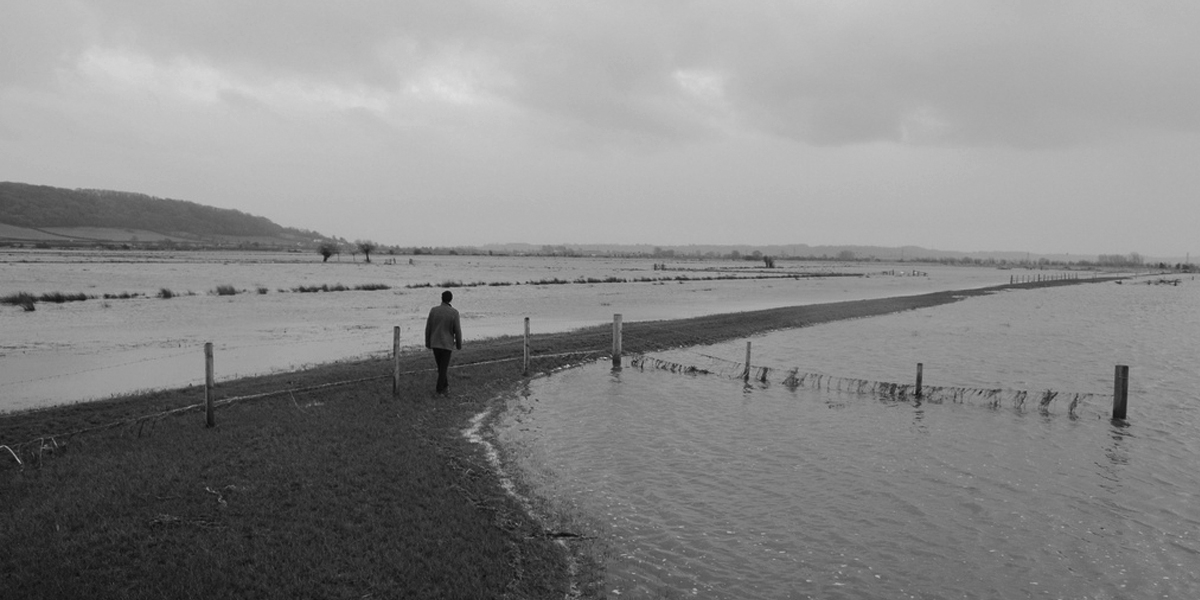In defence of the Environment Agency: the truth about flooding
Behind the current government infighting over who is responsible for responding to the flood crisis lies the wettest winter for a century. This record rainfall is not an isolated incident: in 2012 we had a drought followed by the wettest...
Behind the current government infighting over who is responsible for responding to the flood crisis lies the wettest winter for a century. This record rainfall is not an isolated incident: in 2012 we had a drought followed by the wettest summer on record; 13 of the 14 hottest years since records began have happed in this century according to the United Nations. It is not surprising – except perhaps to a few sitting at the Cabinet table – that the Met Office clearly links the recent flooding to a changing climate.
More extreme weather – be that flooding or drought – will be how the UK experiences climate change. We need to drop the benign sounding phrase ‘global warming’ and start planning for much more volatile weather patterns. Even the government accept this, although you don’t hear Ministers championing this assessment. In 2012, the government published its first ever Climate Change Risk Assessment which identified flooding as the greatest risk to the UK from changing weather patterns.
Local government get this risk, often as the sharp end of managing changing weather patterns; the insurance industry and business get this as they adapt to changing risk and access to resources; and the global scientific community get it with overwhelming evidence of both a changing climate and the human contribution towards it.
Yet, despite this evidence, Eric Pickles took the airwaves blaming the government’s woes on listening too much to the experts. If only this was an isolated incident. Instead of shooting the messenger by a drip-drip briefing against the Environment Agency, the government should face up to its own responsibilities on climate change. For a start, the government needs to accept that it played a part in damaging the capacity of the Environment Agency to manage flood risk.
Following the last big floods in 2007, the government commissioned Sir Michael Pitt to examine the flood response and long-term planning needed to minimise the risk of flood damage. The 2007 floods were the largest peacetime emergency since world war two. Around 40,000 homes were flooded, 13 people lost their lives and it cost £3bn in insurance claims and clean-up. The result was a cross-party consensus on a sustainable approach to managing flooding. One of its central recommendations was that flood spending should increase substantially, a commitment that Labour ministers honoured. The Conservatives also supported that consensus, before the election. In 2010, they ripped it up. Whoever won the last election would have faced difficult choices on public investment, but it is hard to imagine a more reckless approach than that adopted by the coalition.
Within months of coming to office, David Cameron took a sledgehammer to the department of the environment with a 30 per cent cut in funding. In 2010, investment in England and Wales’ flood defences fell from £354m to £259m a year for each of the next four years. The Environment Agency faced its own cuts to important environmental provision, yet innocuous sounding, for river dredging and maintenance. The Environment Agency still has a further 1,500 staff to cut as part of the most recent spending settlement, including around 500 people working on flooding.
The government’s whole approach to the environment can be characterised by antipathy towards independent, scientific advice, and hostility to acknowledging the challenges of climate change. Environment Agency workers – and other emergency services – have done an amazing job over the last month responding to the immediate crisis of the floods. Yet, according to ministers these people are part of the problem. Natural England, just like the Environment Agency, has been stripped of its independence and resources to advise government on the balance between growth and conservation. We now have an environment secretary who is the standard bearer for the flat earth brigade on climate change. None of this means that had the axe not fallen in 2010 homes would not be at threat now. The government has admitted it got it wrong and put an extra £120 million into flood defences in the 2012 Autumn statement. Further announcements have been made about extra investment in flood infrastructure, but the momentum has been lost. Even with the extra money the government will still spend less on flood defences in 2013/14 than was spent in 2010.
I was pleased to see Lord Chris Smith come out fighting on behalf of the Environment Agency after the attacks on its work over the last few days. Dredging is part of the answer, but we are asking the wrong question if we think that it is the whole solution. Yet ministers are hanging onto the idea of dredging like a life raft as they desperately try and shift the blame. The government’s game is simple: make this look complicated and they cannot be held responsible. If anything, the cut to flood defences rings true with Ed Balls’ mantra of too far, too fast.
The UK faces a changing climate whether ministers wish to accept this or not. At some point, we need to recognise the long-term challenge of adapting to a changing climate and the increasing likelihood of extreme weather, be that flooding or drought. For now, the immediate challenge is helping farmers and residents trapped in the terrible life-scarring horror of being flooded. We cannot stop every flood, but we can manage the risk. We need a return to the cross-party consensus that was forged following the 2007 floods. But for that to happen, the government needs to start building consensus instead of spreading the blame.
Andrew Pakes is a former advisor on the environment to the Labour Party and Labour & Co-operative Parliamentary Candidate for Milton Keynes South. He tweets @andrew4mk
